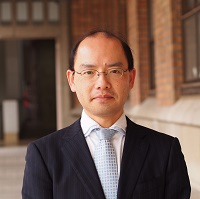
Toru Morotomi
Abe Fellowship 2014
Project Title
Future of Corporate Taxation: A Comparative Study of Influences of Globalization and Competitiveness Considerations on Corporate Tax Reforms in Japan and U.S Institutional Affiliation (at time of award)
Professor, Graduate School of Economics, Kyoto University 